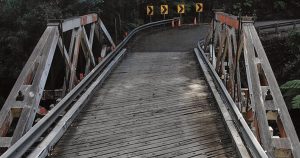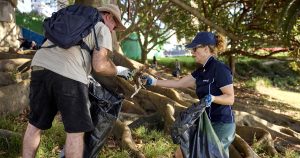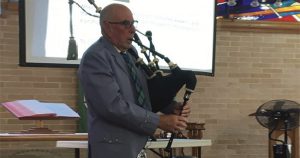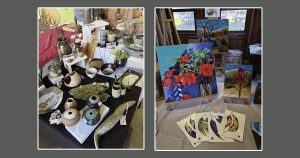[vc_row][vc_column width=”1/6″ offset=”vc_col-lg-1/5 vc_col-md-1/5 vc_col-xs-1/5″][us_image image=”81825″ size=”thumbnail” align=”left” style=”circle” has_ratio=”1″][/vc_column][vc_column width=”1/12″ offset=”vc_col-lg-4/5 vc_col-md-4/5 vc_col-xs-4/5″][vc_column_text]By Annette Madjarian[/vc_column_text][us_post_date][/vc_column][/vc_row][vc_row][vc_column][vc_column_text]Hornsby Council is leading a push for the NSW Government to be lobbied to allow domestic cats to be secured at home and also to give Council power to euthanise feral cats.
At its Council meeting on August 10, Council unanimously voted to put the two contentious motions forward to the 2022 Local Government NSW Annual Conference in October, which would have Local Government NSW lobby the State Government to amend the Companion Animal Act 1998.
In its first motion, Council wants the Act amended, in consultation with councils, to introduce “best practice domestic cat containment requirements to keep cats secured at home in consideration of the associated resource implications of introducing such changes”.
In its second motion, Council wants the Act amended “to enable councils to euthanise feral cats in accordance with a policy adopted by the relevant council”.
However, both motions have come under fire by pet protection agencies with the latter being described as “convenience killing”.
The Animal Justice Party Sydney North West Regional Group was one of several groups to front the Council meeting with their objections both motions.
Animal Justice Party Sydney North West Regional Group Leader Sheila Millgate, who spoke at the meeting, said Council had already made its mind up and was “paying lip service” that night at the Council meeting.
Ms Millgate said motion 1 would mandate cat containment 24 hours a day; and motion 2 would mandate in law the immediate euthanasia of trapped cats, allowing the convenience killing of healthy animals with no chance of being rehomed.
“These motions will do nothing to benefit wildlife and will also have a detrimental effect on the people who care for cats and the cats themselves, who will suffer greatly if these motions are passed,” the Dural resident said.
The Animal Justice Party is calling for both motions to be “wholeheartedly rejected”, particularly since The Companion Animals Amendment (Rehoming Animals) Bill was legislated less than six months ago. The Bill requires pounds to take certain steps to rehome an animal before it considers euthanising them.
“Mandating in law permanent cat containment and immediate euthanasia will create widespread issues for all councils, cat owners, and feeders, council staff, vets and those most in need of assistance in your community, not to mention the cats themselves,” Ms Millgate told Council.
Council has described pet cats as a major threat to native wildlife. Council’s Manager of Governance and Customer Service Stephen Colburt wrote in his report to Council that “keeping cats securely contained at home is the only way to prevent them from killing Australia’s native animals”.
Mr Colburt also said keeping cats at home would have “significant emotional and financial benefits for cat owners, such as reducing threat of injury, disease and death, allowing beloved cats to live a longer, healthier life”.
He said The Companion Animals Act 1998 does not currently contain requirements for cats to be secured at home and council officers can only take action if a cat is a nuisance, interfering with the well-being of a neighbour or damaging property.
Also in his report, Mr Colburt wrote how Council would benefit from feral cats being euthanised, rather than attempt to rehome them.
He said amendments earlier this year to the Companion Animal Act 1998 came into force including new requirements for councils to take additional actions prior to destroying a seized or surrendered animal (including feral cats). The changes require councils to give notice to at least two rehoming organisations that the seized/surrendered animal is available for rehoming; advertise that the seized/surrendered animal is available for rehoming; and follow new record-keeping requirements of the actions a council took to attempt to rehome the animal.
Mr Colburt said the changes had impacted Council’s resources, with associated impacts for the environment.
According to Ms Millgate however, Council had not done its homework on the matter and was acting purely for economic reasons.
“I don’t know what Hornsby Council has against cats. In the long term, this won’t work. Why wouldn’t you give cats a chance to be re-homed? Why euthanise them? It’s an awful decision,” she told the Galston, Glenorie & Hills Rural Community News.
At the same meeting and item, Council deferred asking Local Government NSW to lobby the state Government to 1.) Amend the laws to require a Fauna Management Plan to be submitted for development involving significant vegetation clearing and 2.) Introduce a consistent, enforceable standard across NSW for the preparation of Fauna Management Plans. The matter was deferred for an Informal Council Workshop to discuss the matter. The motion will be considered at the 14 September General Meeting.
Nine Hornsby Shire Councillors, including Mayor Philip Ruddock, will attend the 2022 Local Government NSW Annual Conference in late October.
At the August Council meeting, it was unanimously voted that Councillors Ruddock, Ball, Heyde, McClelland, McIntosh, Pillamarri, Salitra, Tilbury, and Waddell will be Council’s delegates for voting on motions. The conference will be held at The Crowne Plaza, Hunter Valley, from 23 to 25 October.
It’s an opportunity for Council to network and be involved in discussions and consideration of motions about matters which affect Local Government across NSW.[/vc_column_text][/vc_column][/vc_row]






